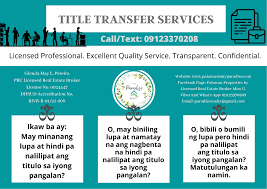
This article will explain everything you need to know about obtaining a Georgia real-estate license. This article will cover the Prerequisites, Exam, and Requirements that must be passed before you can apply. Learn about online study resources. And now, let's move onto some tips to help you pass the exam. You'll soon be able to sell real estate in Georgia!
Prerequisites
Georgia's real estate license requirements are simple. You must have completed at least 75 hours in college-level courses. These classes can either be taken online or in a classroom. You'll need to take six quarter-length or 10 quarter-length courses. You can choose to study online or in the classroom. At least 75 hours must be completed in real estate, agency, contracts, and real property. Accreditation must be obtained for the coursework. If you have completed a real estate class in another state, you must provide official transcripts to the testing agency.
To become licensed Georgia real estate agents, you will need pass an exam. The exam will cost approximately $115 and is worth the money, if you're willing to put in the work. Once you've passed the exam, you must complete a licensing application with the Georgia real estate commission. The commission will do a background search and require fingerprints. You should enroll in a real estate test prep class to make sure you are current on all state requirements.

Exam
First, let's remind you that the Georgia real estate licensing exam costs $115. It may seem expensive, but the cost is worth it. After passing the exam and filling out the application, you will be required to apply to the Georgia real-estate commission. The commission will do a background investigation on you and take your fingerprints. This is done to verify that all information in your file is correct.
You can prepare for the exam by enrolling in a Georgia real estate school. You can choose to take the online course, which is typically 75 hours long, or you can opt to take a classroom course. Online courses are often more time-efficient since you can study at your own pace and organize your time. To apply for a license, you must be at least 21. Additionally, you must have a high school diploma or GED. You must also not be convicted of any crime.
Requirements
Before you begin the application process for a Georgia real property license, it is important to understand what the requirements are. Georgia has an excellent pass rate. Passing the exam requires that you have at least six semester hours or ten quarters of credit in real-estate, agency or contracts. If you miss a semester or ten quarter hours of credit in real estate, agency, or contracts, you can take them again as many times you wish.
You must successfully complete a Broker Prelicense Course before you can take the exam. This course must last at least 60 hours and end with a proctored exam. Georgia MLS Real Estate School, is one of the approved institutions. The school will provide all of the training necessary to pass the exam. If you are successful, then you can apply to Georgia for a real-estate license. The following steps will help you get your license.

Online options
There are many online options available for Georgia real estate licenses. RealEstateU, one of the most popular and economical options, is available. This school has trained more than 40,000 agents across America with its approved 75-hour curriculum. The online course covers everything from real estate eBooks to the prelicense course. You also get instructor support, exam prep and a pass or don't pay guarantee.
Barney Fletcher Schools specializes in Georgia Real Estate Education. Students have several options to choose from, including live classes on webinar and self-paced online courses. The course provides students with live tutoring and access to online instructors. The program is perfect for beginners who are just looking for a license or for seasoned agents who wish to further their education. Kaplan, while more costly than other options, offers excellent support online.
FAQ
Is it possible to get a second mortgage?
Yes. But it's wise to talk to a professional before making a decision about whether or not you want one. A second mortgage is usually used to consolidate existing debts and to finance home improvements.
What can I do to fix my roof?
Roofs can leak because of wear and tear, poor maintenance, or weather problems. Minor repairs and replacements can be done by roofing contractors. Contact us for further information.
How can I get rid Termites & Other Pests?
Termites and other pests will eat away at your home over time. They can cause serious damage to wood structures like decks or furniture. To prevent this from happening, make sure to hire a professional pest control company to inspect your home regularly.
Do I require flood insurance?
Flood Insurance covers flood damage. Flood insurance protects your belongings and helps you to pay your mortgage. Learn more about flood insurance here.
What is a "reverse mortgage"?
A reverse mortgage is a way to borrow money from your home without having to put any equity into the property. This reverse mortgage allows you to take out funds from your home's equity and still live there. There are two types: conventional and government-insured (FHA). Conventional reverse mortgages require you to repay the loan amount plus an origination charge. FHA insurance covers the repayment.
How long does it take to sell my home?
It all depends on several factors such as the condition of your house, the number and availability of comparable homes for sale in your area, the demand for your type of home, local housing market conditions, and so forth. It can take from 7 days up to 90 days depending on these variables.
Is it possible to quickly sell a house?
It may be possible to quickly sell your house if you are moving out of your current home in the next few months. There are some things to remember before you do this. First, find a buyer for your house and then negotiate a contract. Second, you need to prepare your house for sale. Third, advertise your property. You should also be open to accepting offers.
Statistics
- Some experts hypothesize that rates will hit five percent by the second half of 2018, but there has been no official confirmation one way or the other. (fortunebuilders.com)
- Private mortgage insurance may be required for conventional loans when the borrower puts less than 20% down.4 FHA loans are mortgage loans issued by private lenders and backed by the federal government. (investopedia.com)
- Over the past year, mortgage rates have hovered between 3.9 and 4.5 percent—a less significant increase. (fortunebuilders.com)
- Based on your credit scores and other financial details, your lender offers you a 3.5% interest rate on loan. (investopedia.com)
- This means that all of your housing-related expenses each month do not exceed 43% of your monthly income. (fortunebuilders.com)
External Links
How To
How to manage a rental property
Although renting your home is a great way of making extra money, there are many things you should consider before you make a decision. We'll show you what to consider when deciding whether to rent your home and give you tips on managing a rental property.
If you're considering renting out your home, here's everything you need to know to start.
-
What should I consider first? Before you decide if your house should be rented out, you need to examine your finances. If you have outstanding debts like credit card bills or mortgage payment, you may find it difficult to pay someone else to stay in your home while that you're gone. Also, you should review your budget to see if there is enough money to pay your monthly expenses (rent and utilities, insurance, etc. ), it might not be worth it.
-
How much is it to rent my home? There are many factors that influence the price you might charge for renting out your home. These factors include your location, the size of your home, its condition, and the season. You should remember that prices are subject to change depending on where they live. Therefore, you won't get the same rate for every place. Rightmove shows that the median market price for renting one-bedroom flats in London is approximately PS1,400 per months. If you were to rent your entire house, this would mean that you would earn approximately PS2,800 per year. It's not bad but if your property is only let out part-time, it could be significantly lower.
-
Is this worth it? There are always risks when you do something new. However, it can bring in additional income. Be sure to fully understand what you are signing before you sign anything. Renting your home won't just mean spending more time away from your family; you'll also need to keep up with maintenance costs, pay for repairs and keep the place clean. Make sure you've thought through these issues carefully before signing up!
-
Are there any benefits? You now know the costs of renting out your house and feel confident in its value. Now, think about the benefits. You have many options to rent your house: you can pay off debt, invest in vacations, save for rainy days, or simply relax from the hustle and bustle of your daily life. It is more relaxing than working every hour of the day. Renting could be a full-time career if you plan properly.
-
How can I find tenants Once you decide that you want to rent out your property, it is important to properly market it. Online listing sites such as Rightmove, Zoopla, and Zoopla are good options. Once you receive contact from potential tenants, it's time to set up an interview. This will help you assess their suitability and ensure they're financially stable enough to move into your home.
-
What can I do to make sure my home is protected? If you are worried about your home being empty, it is important to make sure you have adequate protection against fire, theft, and damage. You will need to insure the home through your landlord, or directly with an insurer. Your landlord may require that you add them to your additional insured. This will cover any damage to your home while you are not there. This doesn't apply to if you live abroad or if the landlord isn’t registered with UK insurances. In these cases, you'll need an international insurer to register.
-
You might feel like you can't afford to spend all day looking for tenants, especially if you work outside the home. However, it is important that you advertise your property in the best way possible. You should create a professional-looking website and post ads online, including in local newspapers and magazines. It is also necessary to create a complete application form and give references. While some people prefer to handle everything themselves, others hire agents who can take care of most of the legwork. Either way, you'll need to be prepared to answer questions during interviews.
-
What should I do after I have found my tenant? If you have a current lease in place you'll need inform your tenant about changes, such moving dates. If this is not possible, you may negotiate the length of your stay, deposit, as well as other details. Remember that even though you will be paid at the end of your tenancy, you still have to pay utilities.
-
How do I collect my rent? When the time comes to collect the rent, you'll need to check whether your tenant has paid up. You will need to remind your tenant of their obligations if they don't pay. After sending them a final statement, you can deduct any outstanding rent payments. If you're struggling to get hold of your tenant, you can always call the police. They will not usually evict someone unless they have a breached the contract. But, they can issue a warrant if necessary.
-
What can I do to avoid problems? Although renting your home is a lucrative venture, it is also important to be safe. Install smoke alarms, carbon monoxide detectors, and security cameras. Also, make sure you check with your neighbors to see if they allow you to leave your home unlocked at night. You also need adequate insurance. You must also make sure that strangers are not allowed to enter your house, even when they claim they're moving in the next door.